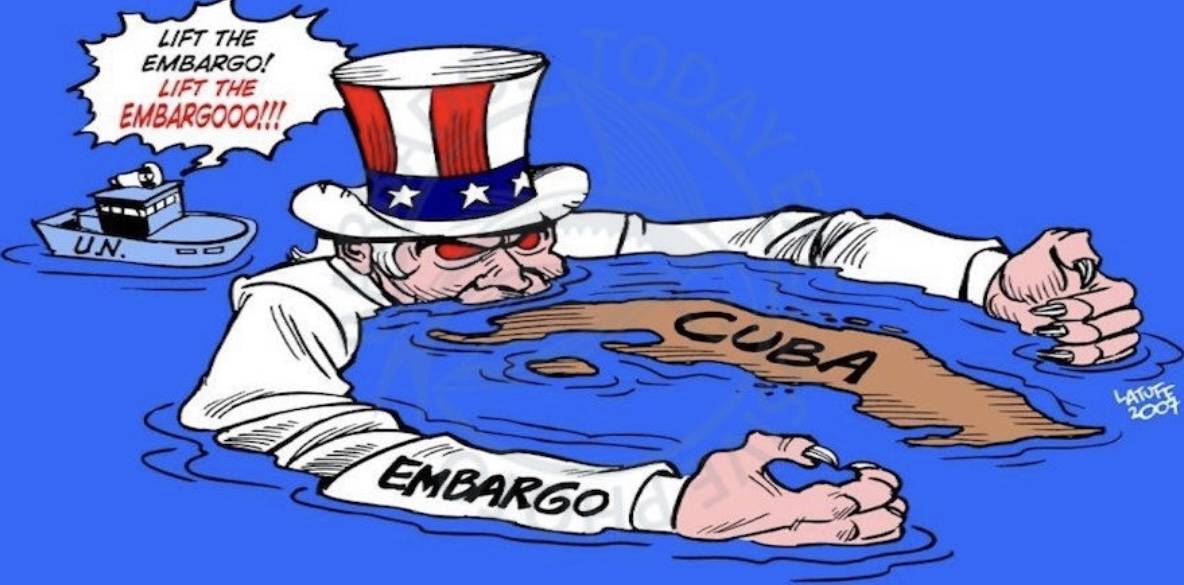187 Nations Oppose Six-Decade-Long US Embargo on Cuba

At a United Nations General Assembly session, member states deliberated on the enduring US embargo against Cuba.
A staggering 187 countries called for its cessation, underscoring a massive consensus for reform.
In contrast, only the US and Israel opposed this move, while Ukraine remained neutral by abstaining.
Originating over 60 years ago, this embargo has significantly constrained Cuba’s trade and economic prospects.
Its repercussions have been a recurring topic at the UN, with increasing momentum for its removal annually.
Critics argue the sanctions impact Cuban citizens more profoundly than its government, limiting vital goods, services, and stymieing economic growth.
Conversely, the US justifies this as a diplomatic strategy, aiming to usher in democracy and respect for human rights in Cuba.
Reacting to the overwhelming vote, Cuba’s Ministry took to social media to emphasize the world’s call to terminate the “genocidal blockade.”
This term underlines the profound adversities the embargo inflicts upon the Cuban populace.
While the UN’s decision mirrors global disapproval of America’s Cuba stance, it can’t override US policy.
The voting pattern, especially the opposing stance of the US and Israel, contrasts sharply with predominant international sentiment.
Ukraine’s abstention hints at its intricate diplomatic stance, given its ties with both the US and Russia.
This ongoing embargo epitomizes broader global disagreements with select US foreign policies.
As a relic of Cold War dynamics, its persistence, despite global condemnation, illustrates intricate international relations and the lingering weight of past decisions.
Historically, the US initiated this embargo in the 1960s, aiming to isolate Castro’s communist regime.
It has since morphed into intricate sanctions targeting democratic reforms and human rights in Cuba.
Yet, many view it as punitive, adversely affecting Cubans more than their leadership.
The international push against this policy signifies a collective call for its revocation to benefit Cuba’s economy.
The enduring US-Israeli resistance to this change and Cuba’s partnerships that defy these sanctions echo the complexity of modern-day geopolitics.






0 Comment